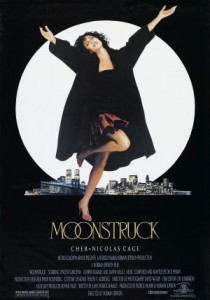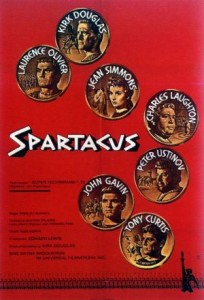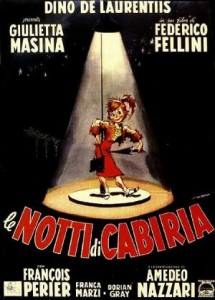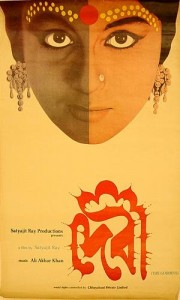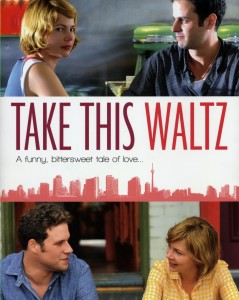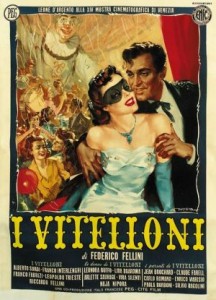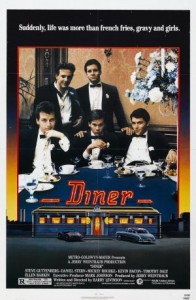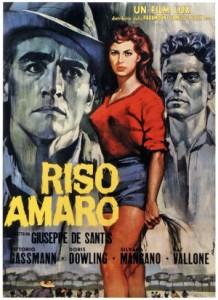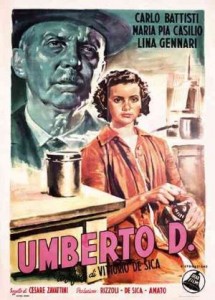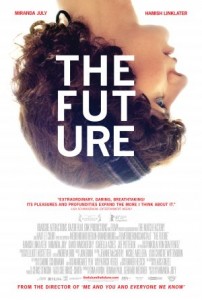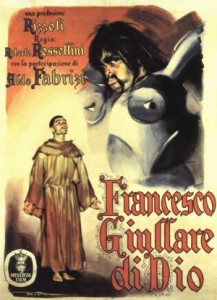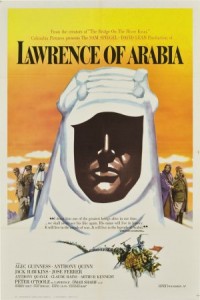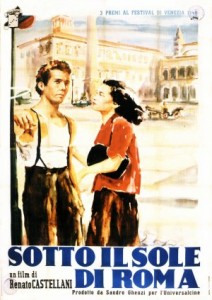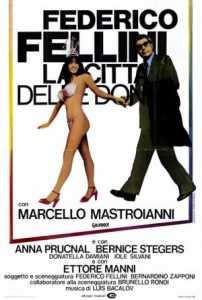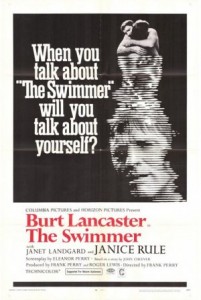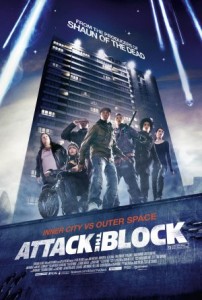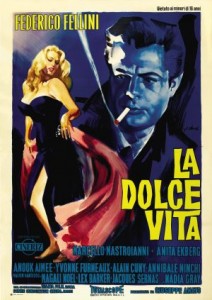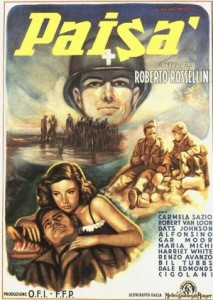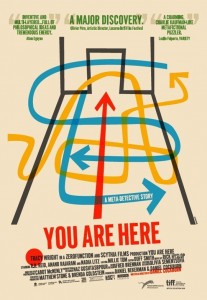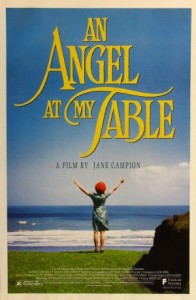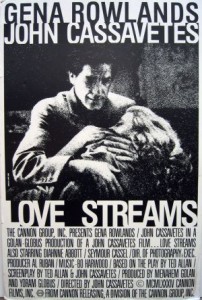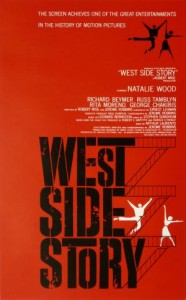This post will be updated with each new announcement.
********UPDATE!!! – to make this list a bit more universally helpful, I’m making it less specific to what I’ve seen. I’ll still brag about all of the titles I already saw at Cannes (or elsewhere) with a SEEN IT tag, but those will otherwise be marked in the appropriate colour. Also, if I’ve seen it AND recommend it (above 5.0), there’ll be a cute little ‘ * ‘ preceding the title.
Annnnd in case it isn’t obvious (it probably isn’t), there is an ascending priority going down the key below. So, for a film like Martha Marcy May Marlene, which played at Sundance and Cannes, has a firm release date in October, and might show up in the NYFF lineup, it’ll be coloured for COMING SOON TO A THEATRE NEAR YOU, because of all of the applicable colour choices, that one is the lowest on my key (why is it the lowest on my key? because TIFF charges $20 per ticket, and half of these films are never heard from again, even if they’re very good). If it didn’t have the release date firmed up, it’d be coloured CANNES gold (it’s gold). Something like A Simple Life would be the ON THE FENCE ‘you-should-prolly-get-that-checked-out’ urine yellow, but since it’s playing Venice, it’s the VENICE mauve-ish colour. If it eventually ends up in the NYFF lineup, it’ll become cyan. If it ends up getting slapped with a November 23 limited release date in North America… hopefully you get the idea. NO THANK YOU trumps all, because no child should be left behind. *********
Key:
35mm – this movie will be screened from a film print (as per the festival’s website)
ON THE FENCE – intriguing; OR decent word from Berlin, SXSW, Sundance, Locarno, or Karlovy Vary.
PRIORITY – one of my most anticipated for 2011; a lock for my schedule.
CANNES – played in a Cannes section somewhere; I’ll probably see it if I haven’t already.
VENICE – playing in planet’s 2nd best festival; Comp. titles w/o dire reviews will land on my schedule.
NYFF – will be on my schedule (if film plays NYFF and Venice/Cannes, it’ll be this color).
COMING SOON TO A THEATRE NEAR YOU – firm theatrical release date in 2011; will not see at TIFF.
WAVELENGTHS – I tend to see all of them.
NO THANK YOU – get this mess out of my face.
Special Presentations (68)
11 Flowers – Wang Xiaoshuai, World Premiere
50/50 – Jonathan Levine, World Premiere
360 – Fernando Meirelles, World Premiere 35mm
Afghan Luke – Mike Clattenburg, North American Premiere 35mm
Americano – Mathieu Demy, World Premiere 35mm
Anonymous – Roland Emmerich, World Premiere
The Artist – Michel Hazanavicius, Toronto Premiere SEEN IT
A Better Life – Cédric Khan, World Premiere
Breakaway – Robert Lieberman, World Premiere
Burning Man – Jonathan Teplitzky, World Premiere
Café de Flore – Jean-Marc Vallée, North American Premiere 35mm SEEN IT
The Cardboard Village – Ermanno Olmi, International Premiere
Chicken with Plums – Marjane Satrapi, Vincent Paronnaud, North American Premiere
Coriolanus – Ralph Fiennes, North American Premiere 35mm
Countdown – Huh Jong-ho, World Premiere 35mm
Damsels in Distress – Whit Stillman, North American Premiere 35mm
Dark Horse – Todd Solondz, North American Premiere
Death of a Superhero – Ian FitzGibbon, World Premiere
The Deep Blue Sea – Terence Davies, World Premiere 35mm
The Descendants – Alexander Payne, World Premiere 35mm
* Drive – Nicolas Winding Refn, Canadian Premiere SEEN IT
Edwin Boyd – Nathan Morlando, World Premiere 35mm
Elles – Malgorzata Szumowska, World Premiere
The Eye of the Storm – Fred Schepisi, International Premiere
The First Man – Gianni Amelio, World Premiere 35mm
Friends With Kids – Jennifer Westfeldt, World Premiere 35mm
Goon – Michael Dowse, World Premiere
* Habemus Papam – Nanni Moretti, North American Premiere 35mm SEEN IT
Headhunters – Morten Tyldum, North American Premiere SEEN IT
Hick – Derick Martini, World Premiere 35mm
The Hunter – Daniel Nettheim, World Premiere
In Darkness – Agnieszka Holland, World Premiere 35mm
Intruders – Juan Carlos Fresnadillo, World Premiere
Jeff Who Lives at Home – Jay Duplass, Mark Duplass, World Premiere
* Keyhole – Guy Maddin, World Premiere 35mm SEEN IT
Killer Joe – William Friedkin, North American Premiere
Life Without Principle – Johnnie To, North American Premiere
Like Crazy – Drake Doremus, International Premiere
Low Life – Nicolas Klotz, Elisabeth Perceval, North American Premiere
Machine Gun Preacher – Marc Forster, World Premiere
* Martha Marcy May Marlene – Sean Durkin, Canadian Premiere 35mm SEEN IT
Mausam (Seasons of Love) – Pankaj Kapur, World Premiere 35mm
* Melancholia – Lars von Trier, North American Premiere 35mm SEEN IT
Monsieur Lazhar – Philippe Falardeau, North American Premiere 35mm
The Moth Diaries – Mary Harron, North American Premiere
My Worst Nightmare – Anne Fontaine, World Premiere
The Oranges – Julian Farino, World Premiere
Pearl Jam Twenty – Cameron Crowe, World Premiere
Rampart – Oren Moverman, World Premiere
Rebellion – Mathieu Kassovitz, World Premiere
Salmon Fishing in the Yemen – Lasse Hallstrom, World Premiere 35mm
Shame – Steve McQueen, North American Premiere 35mm SEEN IT
A Simple Life – Ann Hui, North American Premiere
* The Skin I Live In- Pedro Almodóvar, North American Premiere SEEN IT
* Sleeping Beauty – Julia Leigh, North American Premiere SEEN IT
Take Shelter – Jeff Nichols, Canadian Premiere
Ten Year – Jamie Linden, World Premiere 35mm
Terraferma – Emanuele Crialese, International Premiere 35mm
That Summer – Philippe Garrel, North American Premiere
Trishna – Michael Winterbottom, World Premiere
Twixt – Francis Ford Coppola, World Premiere
Tyrannosaur – Paddy Considine, Canadian Premiere 35mm
Violet & Daisy – Geoffrey Fletcher, World Premiere
Warriors of the Rainbow: Seediq Bale – Wei Te-Sheng, North American Premiere
We Need to Talk About Kevin – Lynne Ramsay, Canadian Premiere 35mm SEEN IT
Where Do We Go Now? – Nadine Labaki, International Premiere
Woman in the Fifth – Pawel Pawlikowski, World Premiere 35mm
Wuthering Heights – Andrea Arnold, North American Premiere
Galas (20)
Albert Nobbs – Rodrigo Garcia, World Premiere
The Awakening – Nick Murphy, World Premiere
Beloved – Christophe Honoré, International Premiere SEEN IT
Butter – Jim Field Smith, World Premiere
A Dangerous Method – David Cronenberg, North American Premiere
From The Sky Down – Davis Guggenheim, World Premiere
A Happy Event – Rémi Bezancon, World Premiere
Hysteria – Tanya Wexler, World Premiere
* The Ides of March – George Clooney, North American Premiere SEEN IT
Killer Elite – Gary McKendry, World Premiere
The Lady – Luc Besson, World Premiere
Machine Gun Preacher – Marc Forster, World Premiere 35mm
Moneyball – Bennett Miller, World Premiere
Page Eight – David Hare, International Premiere
Peace, Love, & Misunderstanding – Bruce Beresford, World Premiere
Starbuck – Ken Scott, North American Premiere 35mm
Take this Waltz – Sarah Polley, World Premiere SEEN IT
Trespass – Joel Schumacher, World Premiere 35mm
Winnie – Darrell J. Roodt, World Premiere
W.E. – Madonna, North American Premiere
Vanguard (9)
Carré Blanc – Jean-Baptiste Leonetti, World Premiere
Doppelgänger Paul – Dylan Akio Smith & Kris Elgstrand, World Premiere SEEN IT
Generation P – Victor Ginzburg, North American Premiere
Headshot – Pen-ek Ratanaruang, World Premiere
i am a good person/ i am a bad person – Ingrid Veninger, World Premiere
Love and Bruises – Lou Ye, North American Premiere 35mm
Oslo, August 31 – Joachim Trier, North American Premiere SEEN IT
Snowtown – Justin Kurzel, North American Premiere 35mm
The Year of the Tiger – Sebastián Lelio, North American Premiere 35mm
TIFF Kids (4)
First Position – Bess Kargman, World Premiere
The Flying Machine – Martin Clapp, Geoff Lindsey and Dorota Kobiela, International Premiere
A Letter to Momo – Hiroyuki Okiura, World Premiere
A Monster in Paris – Bibo Bergeron, World Premiere
Real to Reel (26)
Arirang – Kim Ki-Duk, North American Premiere SEEN IT
The Boy Who Was King – Andrey Paounov, World Premiere
Comic-Con: Episode IV – A Fan’s Hope – Morgan Spurlock, World Premiere
Crazy Horse – Frederick Wiseman, North American Premiere
Dark Girls – Bill Duke and D. Channsin Berry, World Premiere
Duch, Master of the Forges of Hell – Rithy Panh, International Premiere
The Education of Auma Obama – Branwen Okpako, World Premiere
Gerhard Richter Painting – Corinna Belz, International Premiere 35mm
Girl Model – Ashley Sabin and David Redmon, World Premiere
I’m Carolyn Parker: The Good, the Mad, and the Beautiful – Jonathan Demme, North American Premiere
In My Mother’s Arms – Atia Al Daradji and Mohamed Al Daradji, World Premiere
Into the Abyss – Werner Herzog, World Premiere
Last Call at the Oasis – Jessica Yu, World Premiere
The Last Dogs of Winter – Costa Botes, World Premiere
The Last Gladiators – Alex Gibney, World Premiere
Paradise Lost 3: Purgatory – Joe Berlinger and Bruce Sinofsky, World Premiere
Paul Williams Still Alive – Stephen Kessler, World Premiere
Pink Ribbons, Inc – Léa Pool, World Premiere 35mm
Samsara – Ron Fricke, World Premiere
Sarah Palin – You Betcha! – Nick Broomfield and Joan Churchill, World Premiere
The Story of Film: An Odyssey – Mark Cousins, World Premiere
Surviving Progress – Mathieu Roy & Harold Crooks, World Premiere 35mm
The Tall Man – Tony Krawitz, International Premiere
Undefeated – Dan Lindsay and TJ Martin, International Premiere
Urbanized – Gary Hustwit, World Premiere
Whores’ Glory – Michael Glawogger, North American Premiere 35mm
Midnight Madness (10)
The Day – Douglas Aarniokoski, World Premiere
God Bless America – Bobcat Goldthwait, World Premiere
The Incident – Alexandre Courtes, World Premiere
Kill List – Ben Wheatley, Canadian Premiere 35mm
Livid – Julien Maury and Alexandre Bustillo, World Premiere
Lovely Molly – Eduardo Sanchez, World Premiere
The Raid – Gareth Evans, World Premiere
Sleepless Night – Frederic Jardin, World Premiere 35mm
Smuggler – Katsuhito Ishii, World Premiere 35mm
You’re Next – Adam Wingard, World Premiere
Masters (13)
Almayer’s Folly – Chantal Akerman, North American Premiere 35mm
Faust – Alexander Sokurov, North American Premiere 35mm
Hard Core Logo II – Bruce McDonald, Toronto Premiere 35mm
Le Havre – Aki Kaurismäki, North American Premiere 35mm SEEN IT
I Wish – Kore-Eda, International Premiere 35mm
* The Kid with a Bike – Jean-Pierre & Luc Dardenne, North American Premiere 35mm SEEN IT
* Once Upon A Time in Anatolia – Nuri Bilge Ceylan, Canadian Premiere 35mm SEEN IT
* Outside Satan – Bruno Dumont, North American Premiere 35mm SEEN IT
Pina – Wim Wenders, Canadian Premiere
Restless – Gus Van Sant, North American Premiere SEEN IT
Snows of Kilimanjaro – Robert Guédiguian, North American Premiere
* This is Not a Film – Jafar Panahi & Mojtaba Mirtahmasb, Toronto Premiere SEEN IT
The Turin Horse – Béla Tarr, North American Premiere 35mm
City to City (10)
Caprichosos de San Telmo – Alison Murray, World Premiere
* The Cat Vanishes – Carlos Sorin, International Premiere 35mm SEEN IT
Crane World – Pablo Trapero 35mm
Fatherland – Nicolás Prividera, World Premiere
Invasion – Hugo Santiago, Canadian Premiere 35mm
A Mysterious World – Rodrigo Moreno, North American Premiere 35mm
Pompeya – Tamae Garateguy, North American Premiere
The Stones – Román Cárdenas, International Premiere
The Student – Santiago Mitre, North American Premiere
Vaquero – Juan Minujín, International Premiere
Discovery (25)
Las Acacias – Pablo Giorgelli, North American Premiere 35mm
Alois Nebel – Tomáš Lunák, North American Premiere
Among Us – Marco van Geffen, North American Premiere 35mm
Avalon – Axel Petersén, World Premiere
Back to Stay – Milagros Mumenthaler, North American Premiere 35mm
Behold the Lamb – John McIlduff, North American Premiere
Breathing – Karl Markovics, North American Premiere 35mm SEEN IT
The Brooklyn Brothers Beat the Best – Ryan O’Nan, World Premiere
Bunohan – Dain Said, World Premiere 35mm
Cuchera – Joseph Israel Laban, International Premiere
The Good Son – Zaida Bergroth, International Premiere
Habibi – Susan Youssef, North American Premiere
Hanaan – Ruslan Pak, North American Premiere
Historias Que So Existem Quando Lembradas – Julia Murat, North American Premiere 35mm
The Invader – Nicolas Provost, North American Premiere
J’aime regarder les filles – Frédéric Louf, International Premiere 35mm
Lost in Paradise – Ngoc Dang Vu, World Premiere 35mm
The Other Side of Sleep – Rebecca Daly, North American Premiere 35mm SEEN IT
* Pariah – Dee Rees, International Premiere SEEN IT
Roman’s Circuit – Sebastián Brahm, World Premiere 35mm
Summer Games – Rolando Colla, International Premiere 35mm
The Sword Identity – Haofeng Xu, North American Premiere
Twiggy – Emmanuelle Millet, World Premiere 35mm
Twilight Portrait – Angelina Nikonova, North American Premiere
Volcano – Rúnar Rúnarsson, North American Premiere 35mm SEEN IT
Canada First! (7)
Wetlands – Guy Édoin, North American Premiere 35mm
* Amy George – Yonah Lewis & Calvin Thomas, Canadian Premiere SEEN IT
Leave It On The Floor – Sheldon Larry, Canadian Premiere
Nuit #1 – Anne Émond, World Premiere 35mm
The Odds – Simon Davidson, World Premiere
The Patron Saints – Brian M. Cassidy & Melanie Shatzky, World Premiere
Romeo Eleven – Ivan Grbovic, North American Premiere 35mm
Canada Open Vault (1)
Hard Core Logo – Bruce McDonald 35mm
Contemporary World Cinema (51)
388 Arletta Avenue – Randall Cole, World Premiere 35mm SEEN IT
Always Brando – Ridha Béhi, World Premiere
Azhagarsamy’s Horse – Suseendran, International Premiere
Beauty – Oliver Hermanus, North American Premiere 35mm
Billy Bishop Goes to War – Barbara Willis-Sweete, World Premiere
Blood of my Blood – João Canijo, World Premiere
Bonsái – Cristián Jiménez, North American Premiere
Color of the Ocean – Maggie Peren, World Premiere 35mm
Death for Sale – Faouzi Bensaidi, World Premiere 35mm
* Elena – Andrey Zvyagintsev, North American Premiere SEEN IT
Extraterrestrial – Nacho Vigalondo, World Premiere
Footnote – Joseph Cedar, North American Premiere SEEN IT
The Forgiveness of Blood – Joshua Marston, North American Premiere 35mm
Free Men – Ismaël Ferroukhi, International Premiere
From Up on Poppy Hill – Goro Miyazaki, International Premiere 35mm
A Funny Man – Martin P. Zandvliet, International Premiere 35mm
Future Lasts Forever – Ozcan Alper, World Premiere
* Good Bye – Mohammad Rasoulof, North American Premiere SEEN IT
Goodbye First Love – Mia Hansen-Løve, Canadian Premiere 35mm
Guilty – Vincent Garenq, North American Premiere 35mm
Gypsy – Martin Šulík, North American Premiere 35mm
Heleno – José Henrique Fonseca, World Premiere
Himizu – Sion Sono, North American Premiere 35mm
Hotel Swooni – Kaat Beels, International Premiere 35mm
I’m Yours – Leonard Farlinger, World Premiere 35mm
Islands – Stefano Chiantini, World Premiere
Juan of the Dead – Alejandro Brugués, World Premiere 35mm
Land of Oblivion – Michale Boganim, North American Premiere
Last Days in Jerusalem – Tawfik Abu Wael, North American Premiere
Last Winter – John Shank, North American Premiere 35mm
Lena – Christophe Van Rompaey, World Premiere SEEN IT
Lipstikka – Jonathan Sagall, North American Premiere
Lucky – Avie Luthra, World Premiere 35mm
Man on Ground – Akin Omotoso, World Premiere
Michael – Ribhu Dasgupta, World Premiere
Michael – Markus Schleinzer, North American Premiere SEEN IT
* Miss Bala – Gerardo Naranjo, North American Premiere 35mm SEEN IT
Mr. Tree – Han Jie, North American Premiere 35mm
Omar Killed Me – Roschdy Zem, North American Premiere 35mm
People Mountain People Sea – Cai Shangjun, North American Premiere
Restoration – Yossi Madmony, Canadian Premiere 35mm
Rose – Wojciech Smarzowski, International Premiere
Rough Hands – Mohamed Asli, World Premiere 35mm
* A Separation – Asghar Farhadi, North American Premiere SEEN IT
* The Silver Cliff – Karim Aïnouz, North American Premiere 35mm SEEN IT
Sisters&Brothers – Carl Bessai, World Premiere
Sons of Norway – Jens Lien, International Premiere
Superclásico – Ole Christian Madsen, North American Premiere 35mm
Think of Me – Bryan Wizemann, World Premiere SEEN IT
UFO in her Eyes – Xiaolu Guo, World Premiere 35mm
Union Square – Nancy Savoca, World Premiere
Your Sister’s Sister – Lynn Shelton, World Premiere
Visions (20)
ALPS – Yorgos Lanthimos, North American Premiere 35mm
Century of Birthing – Lav Diaz, North American Premiere
Cut – Amir Naderi, North American Premiere
* Dreileben – Beats Being Dead – Christian Petzold, North American Premiere SEEN IT
* Dreileben – Don’t Follow Me Around – Dominik Graf, North American Premiere SEEN IT
* Dreileben – One Minute of Darkness – Christoph Hochhäusler, North American Premiere SEEN IT
Fable of the Fish – Adolfo Borinaga Alix Jr., International Premiere
* House of Tolerance – Bertrand Bonello, North American Premiere 35mm SEEN IT
KOTOKO – Shinya Tsukamoto, North American Premiere
The Last Christeros – Matias Meyer, World Premiere
The Loneliest Planet – Julia Loktev, North American Premiere 35mm
Monsters Club – Toshiaki Toyoda, World Premiere 35mm
The Mountain – Ghassan Salhab, North American Premiere
* Mushrooms – Vimukthi Jayasundara, North American Premiere SEEN IT
* Play – Ruben Östlund, North American Premiere SEEN IT
* Porfirio – Alejandro Landes, North American Premiere 35mm SEEN IT
Random – Debbie Tucker Green, International Premiere
The River Used to be A Man – Jan Zabeil, International Premiere
Swirl – Helvecio Marins Jr. and Clarissa Campolina, North American Premiere 35mm
This Side of Resurrection – Joaquim Sapinho, World Premiere
Wavelengths (25 [3 are feature-length])
Wavelengths 1: Analogue Arcadia – Tacita Dean, Nick Collins, Sophie Michael, Apichatpong Weerasethakul, Ben Rivers, Raya Martin, & Joshua Bonnetta Some 16mm & 35mm
Wavelengths 2: Twenty Cigarettes – James Benning
Wavelengths 3: Serial Rhythms – Adriana Salazar Arroyo, Alina Rudnitskaya, John Price, Joyce Wieland, Rose Lowder, Jonathan Schwartz, Karen Johannesen, T. Marie, & Kevin Jerome Everson Some 16mm & 35mm
Wavelengths 4: Space is the Place – Chris Kennedy, Mark Lewis, Neïl Beloufa, Eriko Sonoda, Ute Aurand, & Blake Williams (AKA me) Some 16mm & 35mm
Wavelengths 5: The Return/Aberration of Light – Nathaniel Dorsky & Sandra Gibson, Luis Recoder and Olivia Block 16mm & 35mm
Mavericks (9)
Barrymore – Erik Canuel
Deepa Mehta and Salman Rushdie
In Conversation With… Francis Ford Coppola
The Island President – Jon Shenk, World Premiere
The Love We Make – Albert Maysles & Bradley Kaplan, World Premiere
Neil Young Life – Jonathan Demme, World Premiere
Sony Pictures Classics: 20 Years in the Business
Tahrir 2011: The good, the bad, and the politician – Tamer Ezzat, Ayten Amin, & Amr Salama,
Tilda Swinton
Future Projections (11)
1. James Franco and Gus Van Sant: Memories of Idaho (1991; 2010 and 2011) – World Premiere [TIFF Bell Lightbox Atrium, 350 King Street West. September 8 to 18]
2. Mr. Brainwash: Mr. Brainwash in Toronto (2011) – World Premiere [David Pecaut Square, 55 John Street, September 8 to 18, and in collaboration with Gallery One, 121 Scollard Street, September 8 to October 22]
3. Peter Lynch: Buffalo Days (2011) – World Premiere [Thorsell Spirit House, 100 Queen’s Park. September 8 to 18]
4. Eve Sussman | Rufus Corporation: whiteonwhite:algorithmicnoir (2009-2011) [NFB Mediatheque, 150 John Street. September 9 to 11]
5. Gregory Crewdson: Sanctuary (2009) – Canadian Premiere [CONTACT Gallery, 80 Spadina Avenue, suite 310. September 8 to October 22]
6. Nicholas and Sheila Pye: Light as a Feather, Stiff as a Board (2011) – World Premiere [Birch Libralato, 129 Tecumseth Street, September 8 to October 15]
7. Duane Hopkins: Sunday (2009) – North American Premiere [MOCCA, 952 Queen Street West. September 9 to 18]
8. David Rokeby: Plot Against Time (2007-2011) – World Premiere [The Drake Hotel, 1150 Queen Street West. September 8 to 18]
9. * Ben Rivers: Slow Action (2010) – Toronto Premiere [Gallery TPW, 56 Ossington Avenue. September 8 to October 1] SEEN IT
10. Elle Flanders and Tamira Sawatzky: Road Movie (2011) – World Premiere [O’Born Contemporary offsite, 51 Wolseley St. 5th Floor, September 8 to 18]
11. David Lamelas: Time as Activity (Buenos Aires) (2010) – International Premiere [Prefix Institute of Contemporary Art, ste. 124, 401 Richmond Street West. September 8 to 18]
View 2011 TIFF Future Projections in a larger map
Short Cuts Canada (43)
4am – Janine Fung, North American Premiere
Afternoon Tea – DJ Parmar, World Premiere
Combustion – Renaud Hallée, World Premiere
Derailments – Chelsea McMullan, World Premiere
The Devil’s Due – Alexander Gorelick & Adam Shaheen, World Premiere
Doubles with Slight Pepper – Ian Harnarine, World Premiere
The Encounter – Nicholas Pye, World Premiere
A Film Portrait on Reconstructing 12 Possibilities that Preceded the Disappearance of Zoe Dean Drum – Eduardo Menz, World Premiere 35mm
The Fuse: Or How I Burned Simon Bolivar – Igor Drljaca, World Premiere
Good Boy – Isaac Cravit, World Premiere
Heart of Rhyme – Cory Bowles, World Premiere
Hidden Driveway – Sarah Goodman, World Premiere
Hope – Pedro Pires, World Premiere
If I Can Fly – Yoakim Bélanger, International Premiere
Issues – Enrico Colantoni, World Premiere
Lie Down and Die – Kyle Sanderson, World Premiere
Little Theatres: Homage to the Mineral of Cabbage – Stephanie Dudley, North American Premiere
Mandeep – Darrin Klimek, World Premiere
No Words Came Down – Ryan Flowers & Lisa Pham, World Premiere
Of events – Mathieu Tremblay, World Premiere 35mm
One Night With You – Jeanne Leblanc, World Premiere 35mm
Ora – Philippe Baylaucq, World Premiere
The Paris Quintet in Practice Makes Perfect – Benjamin Schuetze, World Premiere
Patch Town – Craig Goodwill, World Premiere
Pathways – Dusty Mancinelli, World Premiere
The Pedestrian Jar – Evan Morgan, World Premiere
The Red Virgin – Sheila Pye, World Premiere
A River in the Woods – Christian Sparkes, Toronto Premiere
La Ronde – Sophie Goyette, North American Premiere 35mm
Solar Wind – Ian Lagarde, World Premiere 35mm
Sorry, Rabbi – Mark Slutsky, World Premiere
Spirit of the Bluebird – Xstine Cook & Jesse Gouchey, Canadian Premiere
Sundays – Jean-Guillaume Bastien, World Premiere 35mm
Surveillant – Yan Giroux, World Premiere
Tabula Rasa – Matthew Rankin, World Premiere 35mm
Throat Song – Miranda de Pencier, World Premiere
Trotteur – Arnaud Brisebois & Francis Leclerc, Canadian Premiere 35mm
Up In Cottage Country – Simon Ennis, World Premiere
Waning – Gina Haraszti, World Premiere
Water – Raha Shirazi, World Premiere
We Ate the Children Last – Andrew Cividino, World Premiere
The Weight of Emptiness – Alain Fournier, World Premiere
A Yodeling Farmer – Mike Maryniuk & John Scoles, World Premiere



